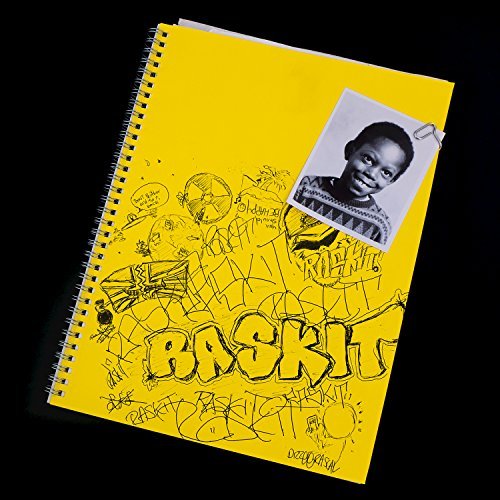
Dizzee Rascal
Raskit
Release Date: Jul 21, 2017
Genre(s): Rap, British Rap
Record label: Island
Music Critic Score
How the Music Critic Score works
Buy Raskit from Amazon
Album Review: Raskit by Dizzee Rascal
Very Good, Based on 8 Critics
Based on rating 4/5
I n July 2008, Dizzee Rascal released the single Dance Wiv Me. It was both the biggest hit of his career to date and the sound of a man exasperatedly throwing in the towel, abandoning grime in a craven bid for commercial success. Who could blame him? His records had sold respectably, but not in a way that reflected the level of excitement caused by 2003's Boy in Da Corner, the debut album that brought London's grime scene into the mainstream's consciousness.
Based on rating 4
On his sixth outing , grime's first mainstream MC exposes pretenders to his crown. If 2013's The Fifth was a rare, guest-heavy misstep that polished off rough edges to brazenly target a transatlantic audience, Raskit junks its predecessor's egregious schmaltz for marauding bass and spartan trap backings. They amplify a biting double-time flow his nearest rivals would readily trade jaws for, Dizzee slaying his competition on Focus and Wot U Gonna Do? and literally eating them for dinner on Space ("Can't find enough time to dine on rappers / All these MCs are looking like tapas").
Based on rating 4/5
Few rappers embody grime's complex relationship with the mainstream as fully as Dizzee Rascal. His acclaimed debut album 'Boy In Da Corner' charted the poverty and paranoia of his adolescence on a council estate in east London, its claustrophobic beats tense and twitchy with frustration. Six years later, Dylan Mills took a decidedly poptastic turn with 2009's buoyant 'Tongue N' Cheek', an album on which he graciously invited doubters to "give my balls a tickle".
Based on rating 3.5
Now that Grime has been fully assimilated into the mainstream, it seems like it’s time for Dizzee Rascal to go back to his roots. For it’s easy to forget that, long before he went Bonkers, before the will.i.am collaborations and big pop anthems, Dylan Mills was an angry, vital MC. That edge has arguably been lost in recent years – especially on albums like The Fifth and Tongue N’ Cheek, but it seems he’s back with a vengeance on Raskit.
Based on rating 7.0/10
In 2008, with exquisite timing, Dizzee Rascal released the Calvin Harris/Chrome collaboration "Dance Wiv Me" and confirmed, some five years after Dizzee's classically bleak debut, Boy in Da Corner, that the mainstream British public was ready to embrace the electro bounce of pop grime. But Dizzee's acute temporal nous didn't last. By 2013, when he released The Fifth, his firebrand talent had drifted into blandly transatlantic commercial rap.
Based on rating 7/10
The passage of time has had a fascinating impact on some of Dizzee's rhetoric. A track like "Wot U Gonna Do" on one of his earlier records would come off brash and confrontational, but in 2017 it plays as more caustic, a warning from an MC who is only 32 years old but has still lived a lifetime in the music industry. The beat is metallic and urgent, toggling between dubstep-inspired gargantuan synths and a menacing string line.
Based on rating 3/5
W hile Dizzee Rascal was busy infiltrating the mainstream with chart-friendly fusions, grime came back. Raskit - his sixth album - is the veteran MC's back-to-basics response, some of it predictable but much of it riveting. "I was on the mic when you were in playschool," he sneers on Ghost. A few tracks hark back to the genre's early days, but Make It Last has little nostalgia for the shootings and back-stabbings.
Opinion: Fairly Good
With all the talk of Jay Z's 4:44 being a grown-up rap album, it feels like we're due one from Dizzee. 'Raskit', however, is less reflective and dripping in wisdom than it is pent-up, confused, and adolescent in its flailing grapple with identity. All the talk on release day will be about 'The Other Side' as Dizzee calls out Wiley directly, as well as So Solid Crew's Megaman and much of the new generation of MCs - some might even suggest that his claim to be "too big for my boots, that's the bloody truth" is an aside directed at Stormzy.
'Raskit'
is available now

